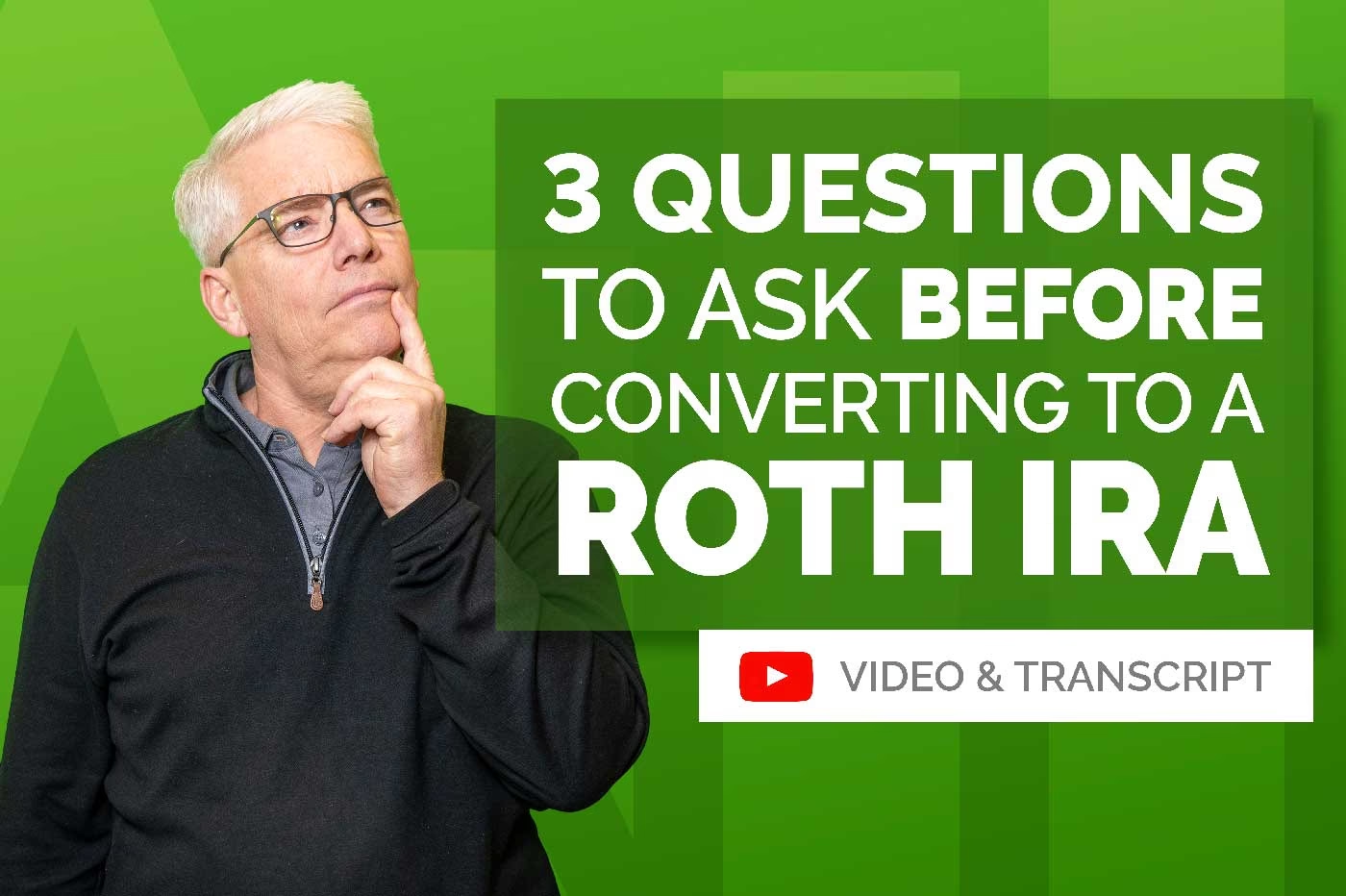Thinking about a Roth IRA conversion? It’s not a one-size-fits-all decision. In this video, Chip Addis shares 3 critical questions to ask before converting. From tax rate comparisons to time horizon and how you’ll pay the taxes, these questions will help you determine whether a Roth conversion is right for your retirement plan.
VIDEO TRANSCRIPT:
Is a Roth IRA Conversion Right for You?
Roth IRAs have some great perks—tax-free growth, no required minimum distributions (RMDs), and tax-free withdrawals in retirement. But converting money from a traditional IRA to a Roth comes at a cost.
That’s why it’s important to ask the right questions before you convert.
Here are three key questions to consider before making the move.
1. What’s Your Tax Rate Now vs. Later?
The first question is simple but important: What tax rate will you pay on the conversion today, versus what you might pay later if you left the money in your traditional IRA?
If you’re in a low-income year, or between jobs, now might be a great time to convert. But if you’re already in a high bracket, converting could push you into an even higher one—and that might not be worth it.
You want to compare your current tax rate to your expected rate in retirement. The lower your current rate, the better a Roth conversion looks.
2. What’s Your Time Horizon?
Roth conversions are much more beneficial when you have time on your side.
If you’re younger or won’t need to access the money for at least five years, the benefits of tax-free growth can really compound. But if you’re closer to retirement or may need those funds soon, it may not give you enough time to recoup the upfront taxes you’ll pay now.
Make sure your timeline lines up with the long-term nature of a Roth.
3. How Will You Pay the Tax?
Here’s a big one—how will you pay the tax bill?
Ideally, you want to pay the tax due with cash from outside the account. If you dip into the IRA to cover the tax, you reduce your retirement savings and lose the compounding benefit you were aiming for in the first place.
If you don’t have the cash to pay the tax out-of-pocket, it might not be the right time to convert.
Final Thoughts
A Roth conversion can be a powerful tool—but only if the timing, tax bracket, and strategy are right for you.
- Can you convert at a lower tax rate today?
- Do you have time to let the Roth grow?
- Can you pay the tax from outside funds?
If you can confidently answer “yes” to all three, a Roth conversion might be a great move for your retirement plan. If not, it may be worth waiting—or working with an advisor to plan for a better opportunity down the road.


